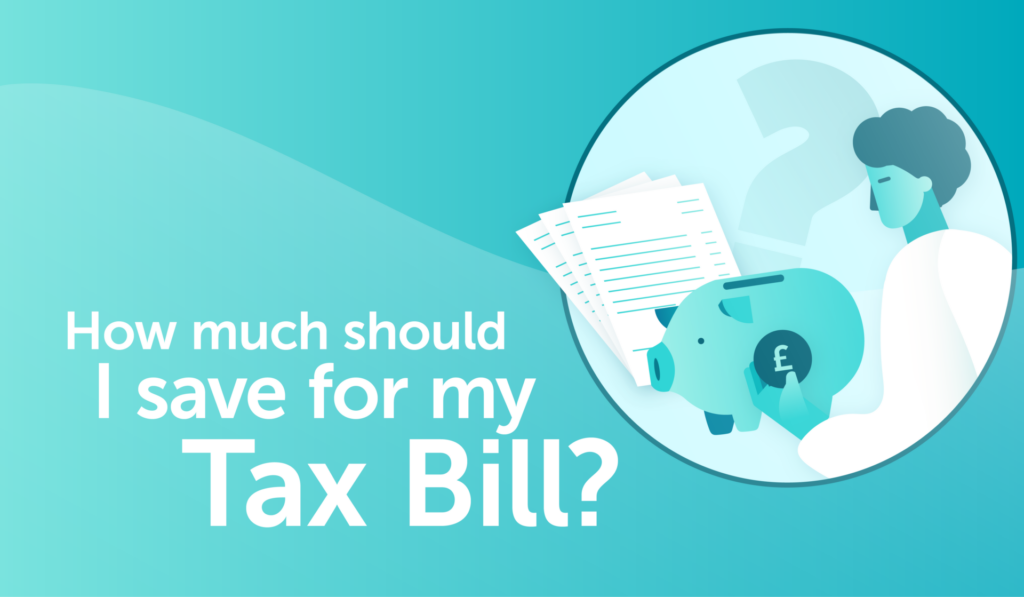
How much should I save for my tax bill? – A Guide for UK Directors of Limited Companies Receiving Salary & Dividends
If you’re a director of a limited company in the UK who pays yourself through a combination of salary and dividends, it’s crucial to understand your tax obligations and plan accordingly. Taxes can be a complex and often daunting aspect of running a business, but being prepared and saving for your tax bill can help you avoid financial surprises. In this blog, we’ll walk you through the key factors to consider when determining how much to save for your tax bill.
1. Understand Your Income Sources
As a director of a limited company, you may receive income in two primary forms: salary and dividends. It’s essential to distinguish between these sources when calculating your tax liability.
Salary: Your salary is subject to Income Tax and National Insurance Contributions (NICs). The rates and thresholds for these taxes can change from year-to-year, so it’s important to stay updated.
The current tax year of 6 April 2024 to 5 April 2025:
| Band | Taxable Income | Tax Rate |
| Personal Allowance | Up to £12,570 | 0% |
| Basic Rate | £12,571 – £50,270 | 20% |
| Higher Rate | £50,271 – £125,140 | 40% |
| Additional Rate | Over £125,140 | 45% |
It is also worth noting that if you earn over £100,000, you begin to lose your personal allowance. For every £2 over £100,000 you earn, you lose £1 of your £12,570 personal allowance, meaning when you earn over £125,140 you receive no personal allowance.
Dividends: Dividends are subject to Dividend Tax. In the current tax year (6 April 2024 to 5 April 2025), there is a £500 dividend allowance, where you pay no tax on this amount.
Tax on any dividends taken over £500 will be tax depending on your Income Tax Band.
Dividend Tax Rates 6 April 2024 to 5 April 2025:
| Tax Band | Tax Rate on Dividends over the Allowance |
| Basic Rate | 8.75% |
| Higher Rate | 33.75% |
| Additional Rate | 39.35% |
2. Keep Accurate Records
Maintaining financial records is essential for calculating your tax liability accurately. You should record your company’s financial transactions, including income and expenses, and ensure that all the necessary paperwork is in order.
3. Estimate Your Taxable Income
To determine how much you should save for your tax bill, you need to estimate your taxable income. This includes your salary, dividends, and any other sources of income, such as rental income or interest on savings. It’s important to consider your personal circumstances and any available tax allowances, deductions, or reliefs that may reduce your taxable income.
4. Calculate Your Tax Liability
With your estimated taxable income in hand, you can calculate your expected tax liability. Make sure you’re using the correct tax rates and thresholds for Income Tax and Dividend Tax. Keep in mind that tax calculations can be quite complex, so it’s always worth consulting with your accountant.
*Please note that if your income is from self-employment you will also need to account for National Insurance when estimating your tax bill.
5. Allow for Payments on Account
If your tax liability is over £1,000, you may need to make payments on account. Payments on account are advance payments toward your next year’s tax bill, and they are typically due in two equal instalments in January and July. These payments can catch some people off guard, so be sure to account for them when saving for your taxes.
For more information read “What is a payment on account?”
6. Set Up a Separate Tax Savings Account
One effective way to save for your tax bill is to create a separate bank account solely for this purpose. Transferring a portion of your income into this account regularly ensures that you have the necessary funds when your tax bill comes due.
7. Review and Adjust as Necessary
Tax regulations, your income, and your financial situation may change from year to year. It’s crucial to review your tax planning regularly and adjust your savings strategy accordingly. Staying proactive will help you avoid surprises and potential financial difficulties.Hi Ge
8. Seek Professional Advice
If your financial situation is particularly complex or if you’re unsure about your tax planning, consider seeking advice from a qualified accountant, as you will be able to receive expert guidance tailored to your specific circumstances.
By following these steps, you can achieve peace of mind and financial stability in managing your tax bills.
If you have any questions regarding your tax liability or what you should be saving for your tax bill, please don’t hesitate to contact us.
(E) enquiries@advaloremgroup.uk (T) 01908 219100 (W) advaloremgroup.uk






